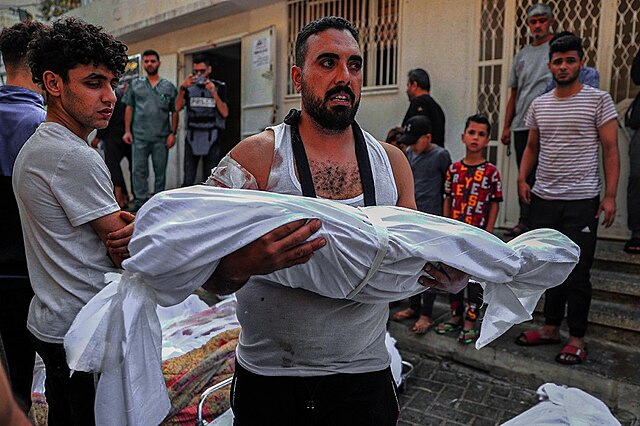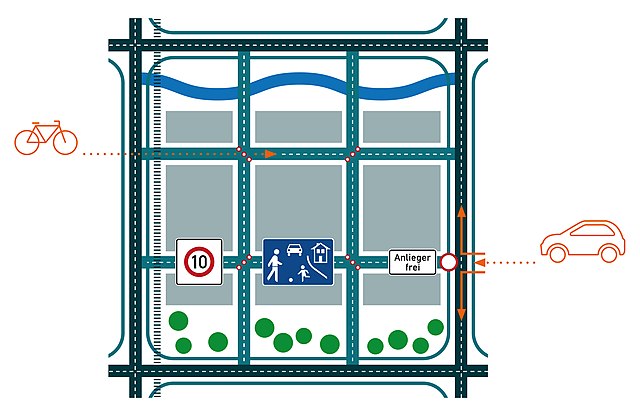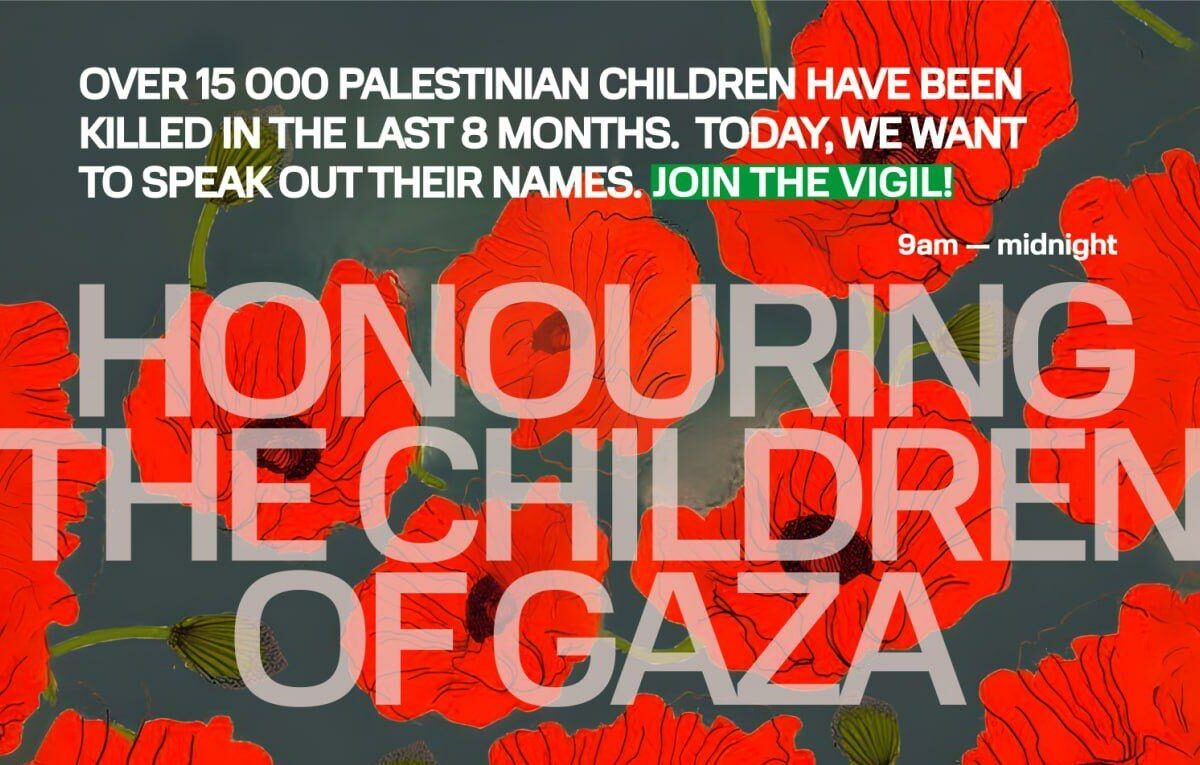Dr Kamalain Shaath, Vice Chairman of the Board of Trustees, Islamic University of Gaza (IUG)
Prof Omar Milad, President of Al Azhar University Gaza, Al Azhar University Gaza
Dr Mohamed Reyad Zughbur, Dean of the Faculty of Medicine, Al Azhar University Gaza
Dr Nasser Abu Alatta, Dean of Students Affairs, Al Aqsa University
Dr Akram Mohammed Radwan, Dean of Admission, Registration, and Student Affairs, University College of Applied Sciences – Gaza
Dr Atta Abu Hany, Dean of Faculty of Science, Al Azhar University Gaza
Prof Hamdi Shhadeh Zourb, Dean of the Faculty of Economics and Administrative Sciences, Islamic University of Gaza (IUG)
Dr Ahmed Abu Shaban, Dean of the Faculty of Agriculture and Veterinary Medicine, Al Azhar University Gaza
Dr Ahmed A Najim, Dean of Admission and Registration, Al Azhar University Gaza
Dr Noha A Nijim, Dean of Economics and Administrative Science Faculty, Al Azhar University Gaza
Prof Hatem Ali Al-Aidi, Dean of Planning and Quality, Islamic University of Gaza (IUG)
Dr Ihab A Naser Dean of Faculty of Applied Medical Sciences, Al Azhar University Gaza
Eng Amani Al-Mqadama, Head of the International Relations, Islamic University of Gaza (IUG)
Dr Mohammed R AlBaba, Dean of Faculty of Dentistry, Al Azhar University Gaza
Dr Rami Wishah , Dean of the Faculty of Law, Al Azhar University Gaza
Prof Basim Mohammad Ayesh, Head of MSc Programme Committee and Professor of Molecular Genetics, Al Aqsa University
Prof Hassan Asour, Dean of Scientific Research, Al Azhar University Gaza
Khaled Ismail Shahada Tabish, Head of Salaries Department, Islamic University of Gaza (IUG)
Prof Mazen Sabbah, Dean of Faculty of Sharia, Al Azhar University Gaza
Dr Ashraf J Shaqalaih, Head of Laboratory Medicine Dept, Al Azhar University Gaza
Dr Mahmoud El Ajouz, Head of Food Analysis Center and Lecturer at the Faculty of Agriculture, Al Azhar University Gaza
Dr Mazen AbuQamar, Head of Nursing Department, Al Azhar University Gaza
Eng Abed Elnaser Mustafa Abu Assi, Head of Engineering Office, Al Azhar University Gaza
Dr Ahmed Rezk Al-Wawi, Vice President of the Islamic University Workers’ Union, Islamic University of Gaza (IUG)
Shareef El Buhaisi, Head of Administration Office at the Faculty of Applied Medical Sciences, Al Azhar University Gaza
Dr Saeb Hussein Al-Owaini, Director of Employees, Islamic University of Gaza (IUG)
Dr Mai Ramadan, Director of the Drug and Toxicology Analysis Centre, Al Azhar University Gaza
Dr Mohammed S M Kuhail, Director of Libraries, Al Azhar University Gaza
Eng Emad Ahmed Ismail Al-Nounou, Director, Technical Department, Al Azhar University Gaza
Eng Ismail Abdul Rahman Abu Sukhaila, Director Engineering Office, Islamic University of Gaza (IUG)
Osama R Shawwa, Director of Administrative Office in the Department of Political Sciences, Al Azhar University Gaza
Adnan A S El-Ajrami, Director of Administrative Office at the Faculty of Medicine, Al Azhar University Gaza
Hashem Mahmoud Kassab, Director of Public Relations and Media Department, Al Azhar University Gaza
Mazen Hilles, Director of Administration of Diploma Programme, Al Azhar University Gaza
Adel Mansour Suleiman Al-Louh , Services Manager, Islamic University of Gaza (IUG)
Hammam Al-Nabahen, Director of IT Services, Islamic University of Gaza (IUG)
Maher Haron Ereif, Audit Department Assistant Director, Al Azhar University Gaza
Khalid Solayman Alsayed, Information Technology Administrator, Al Azhar University Gaza
Dr Amani H Abujarad, Assistant Professor of Applied Linguistics Department of English, Al Azhar University Gaza
Dr Ayman Shaheen, Assistant Professor in Political Sciences, Al Azhar University Gaza
Prof Alaa Mustafa Al-Halees, Faculty of Information Technology, Islamic University of Gaza (IUG)
Prof Basil Hamed, Faculty of Engineering, Islamic University of Gaza (IUG)
Dr Mohamed Elhindy, Assistant Professor in Veterinary Medicine, Al Azhar University Gaza
Prof Bassam Ahmed Abu Zaher, Faculty of Science, Islamic University of Gaza (IUG)
Prof Fakhr Abo Awad, Faculty of Science – Department of Chemistry, Islamic University of Gaza (IUG)
Prof Saher Al Waleed, Professor of Law, Al Azhar University Gaza
Prof Kamal Ahmed Ghneim, Faculty of Arts, Islamic University of Gaza (IUG)
Prof Khadir Tawfiq Khadir, Department of English Language – Faculty of Arts, Islamic University of Gaza (IUG)
Dr Marwan Saleem El-Agha, Assistant Professor of Business Administration, Al Azhar University Gaza
Dr Mona Jehad Wadi, Assistant Professor of microbiology, Al Azhar University Gaza
Dr Mohammed Faek Aziz, Deanship of Quality and Development, Islamic University of Gaza (IUG)
Dr Muhammed Abu Mattar, Associate Professor in Law, Al Azhar University Gaza
Prof Abdul Fattah Nazmi Hassan Abdel Rabbo, Faculty of Science, Islamic University of Gaza (IUG)
Dr Saher Al Waleed, Professor of Law, Al Azhar University Gaza
Dr Sari El Sahhar, Assistant Professor in Plant Protection, Al Azhar University Gaza
Dr Nidal Jamal Masoud Jarada, Law, University College of Applied Sciences – Gaza
Dr Sherin H Aldani, Assistant Professor in Social Sciences, Al Azhar University Gaza
Dr Wael Mousa, Assistant Professor in Food Technology, Al Azhar University Gaza
Prof Mohamed I H Migdad, Faculty of Economics and Administrative Sciences, Islamic University of Gaza (IUG)
Prof Alaa Mustafa Al-Halees, Faculty of Information Technology, Islamic University of Gaza (IUG)
Prof Usama Hashem Hamed Hegazy, Professor of Applied Mathematics, Al Azhar University Gaza
Prof Basil Hamed, Faculty of Engineering, Islamic University of Gaza (IUG)
Prof Tawfik Musa Allouh, Professor of Arabic Literature, Al Azhar University Gaza
Prof Bassam Ahmed Abu Zaher, Faculty of Science, Islamic University of Gaza (IUG)
Prof Zaki S Safi, Professor of Chemistry, Al Azhar University Gaza
Prof Fakhr Abo Awad, Faculty of Science – Department of Chemistry, Islamic University of Gaza (IUG)
Prof Kamal Ahmed Ghneim, Faculty of Arts, Islamic University of Gaza (IUG)
Prof Khadir Tawfiq Khadir, Department of English Language – Faculty of Arts, Islamic University of Gaza (IUG)
Prof Khaled Hussein Hamdan, Faculty of Fundamentals of Religion, Islamic University of Gaza (IUG)
Prof Ata Hasan Ismail Darwish, Professor of Science Education and Curriculum, Al Azhar University Gaza
Prof Hazem Falah Sakeek, Professor of Physics, Al Azhar University Gaza
Prof Mohammed Abdel Aati, Department of Electrical Engineering and Intelligent Systems, Islamic University of Gaza (IUG)
Prof Nader Jawad Al-Nimra, Faculty of Engineering, Islamic University of Gaza (IUG)
Prof Nasir Sobhy Abu Foul, Professor of Food Technology, Al Azhar University Gaza
Dr Rawand Sami Abu Nahla, Lecturer at Faculty of Dentistry, Al Azhar University Gaza
Prof Hussein M. H. Alhendawi, Professor of Organic Chemistry, Al Azhar University Gaza
Prof Ihab S. S. Zaqout, Professor in Computer Science, Al Azhar University Gaza
Dr Rushdy A S Wady, Faculty of Economics and Administrative Sciences, Islamic University of Gaza (IUG)
Dr Abed El-Raziq A Salama, Assistant Professor in Food Technology, Al Azhar University Gaza
Dr Ahmed Aabed, Admin Assistant in Administrative and Financial Affairs Office, Al Azhar University Gaza
Dr Ahmed Mesmeh, Faculty of Sharia and Law, Al Azhar University Gaza
Dr Emad Khalil Abu Alkhair Masoud, Associate professor of microbiology, Al Azhar University Gaza
Dr Alaa Issa Mohammed Saleh, Lecturer at the faculty of Dentistry, Al Azhar University Gaza
Dr Ali Al-Jariri, Continuing Education Department, Al Quds Open University
Dr Arwa Eid Ashour, Faculty of Science, Department of Mathematics, Islamic University of Gaza (IUG)
Dr Hala Zakaria Alagha, Assistant Professor in Clinical Pharmacy, Al Azhar University Gaza
Prof Marwan Khazinda, Professor of Mathematics, Al Azhar University Gaza
Prof Moamin Alhanjouri, Associate Professor in Statistics, Al Azhar University Gaza
Prof Sameer Mostafa Abumdallala, Professor of Economics, Al Azhar University Gaza
Dr Bilal Al-Dabbour, Faculty of Medicine, Islamic University of Gaza (IUG)
Dr Nabil Kamel Mohammed Dukhan, Faculty of Education – Department of Psychology, Islamic University of Gaza (IUG)
Dr Jamal Mohamed Alshareef, Assistant Professor, Linguistics Department of English, Al Azhar University Gaza
Dr Sadiq Ahmed Mohammed Abdel Aal, Faculty of Engineering, Islamic University of Gaza (IUG)
Dr Khaled Abushab, Associate Professor in Applied Medical Sciences, Al Azhar University Gaza
Dr Abed El-Raziq A Salama, Assistant Professor in Food Technology, Al Azhar University Gaza
Dr Emad Khalil Abu Alkhair Masoud, Associate Professor of Microbiology, Al Azhar University Gaza
Dr Hala Zakaria Alagha, Assistant Professor in Clinical Pharmacy, Al Azhar University Gaza
Dr Jamal Mohamed Alshareef, Assistant Professor, Linguistics Department of English, Al Azhar University Gaza
Dr Khaled Abushab, Associate Professor in Applied Medical Sciences, Al Azhar University Gaza
Dr Suheir Ammar, Faculty of Engineering, Islamic University of Gaza (IUG)
Dr Waseem Bahjat Mushtaha, Associate Professor in Dental Medicine, Al Azhar University Gaza
Prof Ali Abu Zaid, Professor of Statistics, Al Azhar University Gaza
Dr Zahir Mahmoud Khalil Nassar, Faculty of Science, Islamic University of Gaza (IUG)
Abdul Hamid Mustafa Said Mortaja, Faculty of Arts, Department of Arabic Language, Islamic University of Gaza (IUG)
Abdul Rahman Salman Nasr Al-Daya, Associate Professor at the Faculty of Sharia and Law, Islamic University of Gaza (IUG)
Ayman Salah Khalil Abumayla, Officer – Student Affairs Department, Al Azhar University Gaza
Abdullah Ahmed Al-Sawarqa, Library, Islamic University of Gaza (IUG)
Ashraf Ahmed Mohammed Abu Mughisib, Faculty of Science, Islamic University of Gaza (IUG)
Mohammed Abdul Fattah Abdel Rabbo, Deanship of Engineering and Information Systems, University College of Applied Sciences – Gaza
Basheer Ismail Hamed Hammo, Faculty of Fundamentals of Religion, Islamic University of Gaza (IUG)
Bssam Fadel Nssar, Faculty of Engineering, Islamic University of Gaza (IUG)
Eng Mohammed Awni Abushaban, Teaching Assistant IT Department, Al Azhar University Gaza
Etemad Mohammed Abdul Aziz Al-Attar, Faculty of Science, Islamic University of Gaza (IUG)
Fahd Ghassan Abdullah Al-Khatib, Engineering Office, Islamic University of Gaza (IUG)
Ibrahim K I Albozom, Administrative Officer Faculty of Arts, Al Azhar University Gaza
Abdullah Ahmed Anaqlah, Faculty of Information Technology, Islamic University of Gaza (IUG)
Ahmed Abdelrahman Abu Saloom, Radiologist at the College of Dentistry, Al Azhar University Gaza
Feryal Ali Mahmoud Farhat, Administrator, Islamic University of Gaza (IUG)
Fifi Al-Zard, Campus Services, Islamic University of Gaza (IUG)
Manar Y Abuamara, Secretary, Al Azhar University Gaza
Hani Rubhi Abdel Aal, Graduate Studies, Islamic University of Gaza (IUG)
Ahmed Abdul Raouf Al-Mabhouh, Faculty of Science, Islamic University of Gaza (IUG)
Ahmed Adnan Al-Qazzaz, Faculty of Information Technology, Islamic University of Gaza (IUG)
Sfadi Salim Abu Amra, Supporting Services Department, Al Azhar University Gaza
Hassan Ahmed Hassan Al-Nabih, Department of English Language – Faculty of Arts, Islamic University of Gaza (IUG)
Hassan Nasr, Information Technology, University College of Applied Sciences – Gaza
Hatem Barhoom, Islamic University of Gaza (IUG)
Tamer Musallam, Lecturer in Business Diploma Programme, Al Azhar University Gaza
Ahmed Adnan Mahmoud Mattar, Information Technology, Islamic University of Gaza (IUG)
Ahmed Jaber Mahmoud Al-Omsey, Islamic University of Gaza (IUG)
Ahmed Khalil Ibrahim Qadoura, Administrator, Islamic University of Gaza (IUG)
Hussein Al-Jadaily, Faculty of Nursing, Islamic University of Gaza (IUG)
Ibrahim Issa Ibrahim Seidem, Faculty of Fundamentals of Religion, Islamic University of Gaza (IUG)
Ezia Abu Zaida, Secretary, Al Azhar University Gaza
Khaled Mutlaq Issa, Faculty of Engineering, Islamic University of Gaza (IUG)
Khalil Mohammed Said Hassan Abu Kuweik, Faculty of Economics and Administrative Sciences, Islamic University of Gaza (IUG)
Ibraheem Almasharawi, Instructor at the Faculty of Agriculture and Veterinary Medicine, Al Azhar University Gaza
Maher Jaber Mahmoud Shaqlieh, Information Technology Affairs, Islamic University of Gaza (IUG)
Mahmoud Abdul Rahman Mousa Asraf, Department of English Language, Islamic University of Gaza (IUG)
Ahmed Mohammed Said Abu Safi, Islamic University of Gaza (IUG)
Ahmed Omar Ismail Al-Dahdouh, Faculty of Information Technology, University College of Applied Sciences – Gaza
Ahmed Salman Ali Abu Amra, Faculty of Sharia and Law, Islamic University of Gaza (IUG)
Ahmed Saqer, Faculty of Science, Department of Mathematics, Islamic University of Gaza (IUG)
Ahmed Younes Abu Labda, Personnel Affairs, Islamic University of Gaza (IUG)
Alaa Fathi Salim Abu Ajwa, Islamic University of Gaza (IUG)
Mahmoud Said Mohammed Al- Damouni, Central Library, Islamic University of Gaza (IUG)
Ghasasn Alswairki, Adminstration Officer at Faculty of Pharmacy, Al Azhar University Gaza
Mahmoud Shukri Sarhan, Faculty of Education, Islamic University of Gaza (IUG)
Mahmoud Youssef Mohammed Al- Shoubaki, Faculty of Fundamentals of Religion, Islamic University of Gaza (IUG)
Majdi Said Aqel, Faculty of Education, Islamic University of Gaza (IUG)
Muahmmed Abu Aouda, Security Department, Al Azhar University Gaza
Majed Hania, Faculty of Science, Islamic University of Gaza (IUG)
Majed Mohammed Ibrahim Al-Naami, Faculty of Literature, Islamic University of Gaza (IUG)
Mamoun Abdul Aziz Ahmed Salha, Information Technology, Islamic University of Gaza (IUG)
Emad Ali Ahmed Abdel Rabbo, Administrator, Islamic University of Gaza (IUG)
Imad Alwaheidi Lecturer in Livestock Production Al Azhar University Gaza
Manar Mustafa Al-Maghari, Medical Department, Islamic University of Gaza (IUG)
Mohammed Bassam Mohammed Al- Kurd, Campus Services, Islamic University of Gaza (IUG)
Marwa Rouhi Abu Jalaleh, Information Technology Department, Islamic University of Gaza (IUG)
Yousif Altaban, Security Department, Al Azhar University Gaza
Hala Muti Mahmoud Abu Naqeera, Student Affairs, Islamic University of Gaza (IUG)
Marwan Ismail Abdul Rahman Hamad, Faculty of Education, Islamic University of Gaza (IUG)
Mohammad Hussein Kraizem, Health Sciences, Islamic University of Gaza (IUG)
Mohammed AlAshi, Faculty of Economics and Administrative Sciences, Islamic University of Gaza (IUG)
Mohammed Hassan Al-Sar, Faculty of Engineering, Islamic University of Gaza (IUG)
Mohammed Ibrahim Khidr Al-Gomasy, Faculty of Education, Islamic University of Gaza (IUG)
Mohammed Juma Al-Ghoul, Faculty of Sharia and Law, Islamic University of Gaza (IUG)
Mohammed Khalil Ayesh, Information Technology, Islamic University of Gaza (IUG)
Faiz Ahmed Ali Hales, Computer Maintenance Department, Islamic University of Gaza (IUG)
Mohammed Taha Mohammed Abu Qadama, Administrator, Islamic University of Gaza (IUG)
Yousef Fahmy Krayem, Lab Technician at Faculty of Agriculture and Veterinary Medicine, Al Azhar University Gaza
Nabhan Salem Abu Jamous, Department of Supplies and Purchases, Head of Storage Section, Islamic University of Gaza (IUG)
Nihad Mohammed Sheikh Khalil, Faculty of Arts – Department of History, Islamic University of Gaza (IUG)
Tamer Nazeer Nassar Madi, Faculty of Information Technology, Islamic University of Gaza (IUG)
Rami Othman Mohammed Hassan Skik, Faculty of Information Technology, Islamic University of Gaza (IUG)
Salah Hassan Radwan, Information Technology, Islamic University of Gaza (IUG)
Salem Abushawarib, Faculty of Economics and Administrative Sciences, Islamic University of Gaza (IUG)
Salem Jameel Bakir Al-Sazaji, Faculty of Information Technology, Islamic University of Gaza (IUG)
Abed Alraouf S Almasharawi, Administrative Officer in the Library, Al Azhar University Gaza
Samah Al-Samoni, Public Relations, Islamic University of Gaza (IUG)
Wafa Farhan Ismail Ubaid, Faculty of Nursing, Islamic University of Gaza (IUG)
Tawfiq Sufian Tawfiq Harzallah, Admission and Registration Department, Islamic University of Gaza (IUG)
Walid Zuheir Aidi Abu Shaaban, Finance and Auditing Department, Islamic University of Gaza (IUG)
Yasser Zaidan Salem Al-Nahal, Faculty of Science, Islamic University of Gaza (IUG)
Youssef Sobhi Abdel Nabi Al-Rantissi, Computer Technician, Islamic University of Gaza (IUG)





